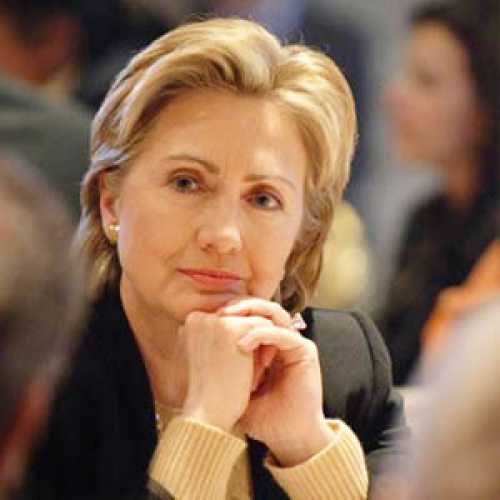 The most important thing that French President Nicolas Sarkozy emphasized during a visit to Yerevan in October 2011 was that France will introduce sanctions against Turkey if it fails to recognize the Armenian genocide by the end of the year. (more…)
The most important thing that French President Nicolas Sarkozy emphasized during a visit to Yerevan in October 2011 was that France will introduce sanctions against Turkey if it fails to recognize the Armenian genocide by the end of the year. (more…)
Category: World
-
Turkey’s foreign policy in free fall
Turkey’s foreign policy in free fall
Problems with four neighbors
By Ben Birnbaum
The Washington Times**FILE** In this photo from Sept. 6, 2011, Turkish Prime Minister Recep Tayyip Erdogan speaks to the media in Ankara, Turkey. (Associated Press) Turkey’s foreign policy vision is best captured by its foreign minister’s motto: “Zero problems with neighbors.”
But with the predominantly Muslim country facing escalating crises with Syria, Iran, Iraq and Israel, Turkish opposition leaders say the rhetoric has not matched the reality.
“The claim of the government was to pursue a policy of having ‘zero problems with neighbors,’ and now we are having all sorts of problems with all our neighbors,” said Faik Oztrak, deputy chairman of Turkey’s Republican People’s Party (CHP).
In recent months, Prime Minister Recep Tayyip Erdogan’s government has:
• Taken a lead role in pressuring Syrian President Bashar Assad to resign, imposing sanctions on Syria and hosting refugees and opposition leaders.
• Agreed to host NATO missile defense radar installations intended to protect Europe from Iranian missiles. Iran, in response, has threatened to take out the Turkish sites if the U.S. or Israel attack its nuclear program.
• Launched airstrikes on Kurdish rebel safe havens in northern Iraq in retaliation for terrorist attacks carried out by the Kurdistan Workers’ Party, inflaming Turkish border tensions with Iraq.
• Expelled the Israeli ambassador after the Jewish state refused to apologize for a 2010 raid on a Gaza-bound convoy that killed nine Turkish nationals.
The conflicts are a sharp departure from last year, when Turkey’s relations with many of its neighbors were at a new high.
CHP elder statesman Faruk Logoglu, who served as Turkey’s ambassador to the U.S. from 2001 to 2005, said his country’s foreign policy has failed, adding that Foreign Minister Ahmet Davutoglu “cannot point to a single accomplishment.”
Mr. Logoglu reserved particularly harsh criticism for the Erdogan administration’s Syria policy.
“We agree with the government’s goals but not the approach,” he said, railing against sanctions that he argued hurt ordinary Syrians and Turkish businesses.
He also claimed that the government’s “unfettered support for the opposition,” including providing refuge to its leaders, is “condemning Syria to a protracted civil war.”
Mr. Davutoglu responded to criticism of the government’s Syria policy last week, saying he is still committed to the zero-problems motto.
“But we cannot remain silent if one of our neighbors oppress its people,” the foreign minister said.
via Turkey’s foreign policy in free fall – Washington Times.
More : https://www.washingtontimes.com/news/2011/dec/20/turkeys-foreign-policy-in-free-fall/
-

John Terry To Face Racial Abuse Charges

Chelsea and England captain John Terry will face charges over allegations he racially abused another player.
The player will appear in court on February 1 following the decision by the Crown Prosecution Service (CPS).
Alison Saunders, Chief Crown Prosecutor for London said:
“I have today advised the Metropolitan Police Service that John Terry should be prosecuted for a racially aggravated public order offence following comments allegedly made during a Premier League football match between Queen’s Park Rangers and Chelsea on 23 October 2011.
“The decision was taken in accordance with the Code for Crown Prosecutors and after careful consideration of all the evidence I am satisfied there is sufficient evidence for a realistic prospect of conviction and it is in the public interest to prosecute this case.”
Videos of the alleged incident were circulated online and last week the CPS were handed previously unseen footage.
The Chelsea star has always denied making a racist comment to QPR’s Anton Ferdinand.
Reacting to the CPS statement he said:
“I am disappointed with the decision to charge me and hope to be given the chance to clear my name as quickly as possible.
“I have never aimed a racist remark at anyone and count people from all races and creeds among my closest friends.
“I will fight tooth and nail to prove my innocence. I have campaigned against racism and believe there is no place for it in society.”
Ahead of the CPS decision Terry’s manager Andre Villas-Boas said the defender had his “full support” of both himself and the Chelsea club.
n a statement, Terry’s club said:
“Chelsea FC has always been fully supportive of John in this matter and will continue to be so.
“The club finds all forms of discrimination abhorrent and we are proud of the work we undertake campaigning on this important issue.”
If convicted, the multimillionaire would face a fine of around £2,500.
Sky
-

Turkey and America
A Perverse Process
Nina Shea December 18th 2011
Hudson Institute Secretary of State Hillary Clinton on Wednesday ended the “Istanbul Process,” a three-day, closed-door international conference hosted by the State Department on measures to combat religious “intolerance, negative stereotyping and stigmatization.”
Secretary of State Hillary Clinton on Wednesday ended the “Istanbul Process,” a three-day, closed-door international conference hosted by the State Department on measures to combat religious “intolerance, negative stereotyping and stigmatization.”The conference was intended to “implement” last March’s UN Human Rights Council Resolution 16/18, on the same subject. Notwithstanding Clinton’s final speech defending freedoms of religion and speech, the gathering was folly. Resolution 16/18 was adopted in the place of one that endorsed the dangerous idea that “defamation of religion” should be punished criminally worldwide.
That call for a universal blasphemy law had been pushed relentlessly for 12 years by the Saudi-based Organization of Islamic Cooperation, an essentially religious body chartered to “combat defamation of Islam.” It issues fatwas and other directives to punish public expression of apostasy from Islam and “Islamophobia.” Leading OIC states behind this campaign – Saudi Arabia, Iran, Egypt and Pakistan – imprison and/or sentence to death “blasphemers.”
Resolution 16/18 deplores religious intolerance but doesn’t limit speech – the result of a deft State Department maneuver. The administration should have let matters rest there. Instead, while co-chairing an OIC “High Level Meeting” addressing Islamophobia last July in Istanbul, Clinton invited the OIC to Washington to discuss how to “implement” resolution 16/18.
While the Washington conference ended inconclusively, it should not have been held because it offered a transnational venue for the OIC to reintroduce its anti-defamation push, just as the issue had been laid to rest at the United Nations. The administration erred in viewing resolution 16/18 as a meeting of minds between the OIC and America on freedoms of religion and speech. In Istanbul, Clinton asserted that the United States does not want to see speech restrictions — but her conference announcement immediately reignited OIC demands for the West to punish anti-Islamic speech.
As the OIC reported it: “The upcoming [Washington] meetings . . . [will] help in enacting domestic laws for the countries involved in the issue, as well as formulating international laws preventing inciting hatred resulting from the continued defamation of religions.” It unfairly held up the American experience for special scrutiny and critique.
A legal official’s opening keynote address gave a one-sided historical depiction of American bigotry against religious minorities, including Muslims, without explaining our relatively exemplary achievement of upholding individual freedoms of religion and speech in an overwhelmingly tolerant and pluralistic society. He told the participants, some representing the world’s most repressive states, that America can learn to protect religious tolerance from them.
By standing “united” (as the OIC head put it in a Turkish Daily op-ed) with the OIC on these issues, America appears to validate the OIC agenda, thus demoralizing the legions of women’s rights and human-rights advocates, bloggers, journalists, minorities, converts, reformers and others in OIC states who look to the United States for support against oppression. It raises expectations that America can and will regulate speech on behalf of Islam, as has happened in Western Europe, Canada and Australia.
The European Union mandated religious-hate-speech codes after global riots and other similar violence erupted in 2006 over a Danish newspaper’s publication of caricatures of Mohammad. America is facing pressure to conform to this new global “best practice”; this will only intensify it.
Clinton on Wednesday naively importuned Islamist diplomats: “We have to get past the idea that we can suppress religious minorities, that we can restrict speech, that we are smart enough that we can substitute our judgment for God’s and determine who is or is not blaspheming.” Saudi Arabia’s Wahhabi establishment isn’t likely to find such “infidel’” arguments persuasive.
US diplomats should stop the “Istanbul Process” and begin to energetically and confidently promote the virtues of our First Amendment freedoms. They should be thoroughly briefed about the OIC’s intractable position on blasphemy laws and the extent of atrocities associated with them. They must end signaling that there is common ground on these issues between us and the OIC.
Nina Shea writes for Hudson Institute, from where this article is adapted.
via The Cutting Edge News.
-

Iran Threatens To Send ‘OIL’ To $200 A Barrel
War in the Economic Jugular Vein of the World
 By Steve Christ
By Steve ChristAre you ready for ‘OIL’ to skyrocket to $200 a barrel?
Iran is!
And, they’re prepared to play their trump card to send it there.
Faced with a rash of mysterious explosions, military drones caught flying overhead, and renewed promises to end their nuclear ambitions, the Iranians are threatening to close the Strait of Hormuz — otherwise known as “the economic jugular vein of the world” — again.
As Iranian lawmaker Parviz Sarvari said yesterday, “Soon we will hold a military maneuver on how to close the Strait of Hormuz. If the world wants to make the region insecure, we will make the world insecure.”
The announcement came just weeks after Iran’s energy minister told Al Jazeera television that Tehran was prepared to use oil as a political tool in any “conflict over its nuclear program.”
Given Iran’s dominance over this bottleneck for oil exports from the Persian Gulf, this is a promise they can likely keep…
Today’s price of $100 a barrel doesn’t even come close to pricing in the geopolitical calamity closing the Persian Gulf would present.
Just 34 miles wide, thirteen tankers carrying 15.5 million barrels of crude oil pass through the Strait each day, making it one of the world’s most important waterways.
In all, 33% of the oil shipped via tankers passes through the Strait of Hormuz.
The Strait is so vital to the world economy, its closure would be considered an act of war that only the U.S. Navy has the power to fix…
www.wealthdaily.com, December 13th, 2011


